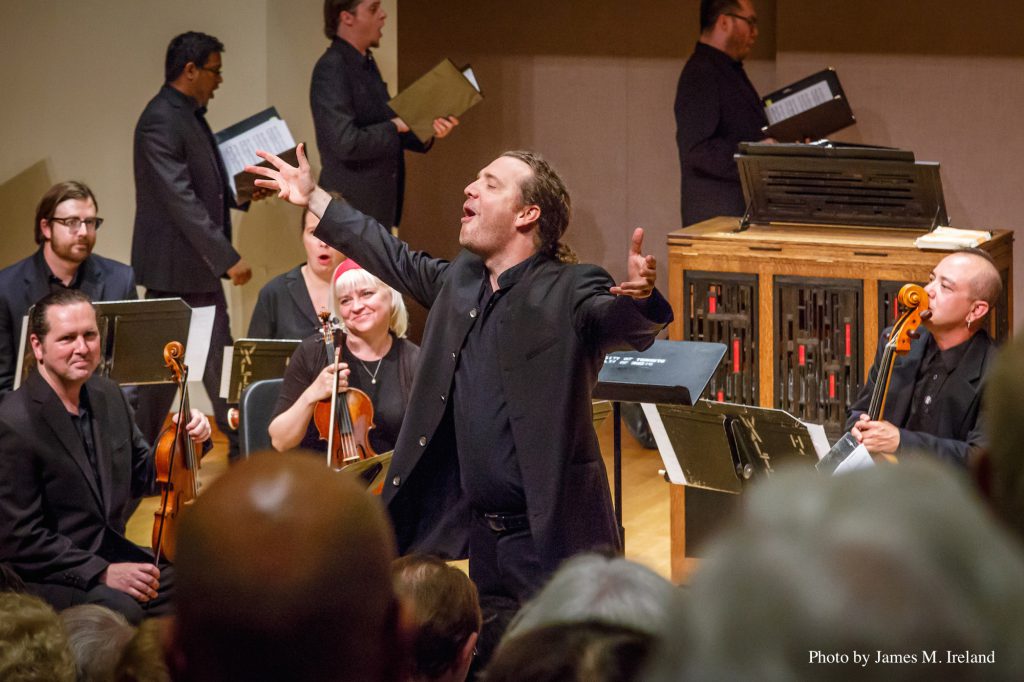On October 11, 1727, George II, was crowned King of England. His journey to the throne had been a rough ride. His father, George I, Elector of Hanover, imported by an opportunistic Parliament to quell the threat of a dreaded Catholic succession, had prided himself on his singular disinterest in the political and cultural affairs of his adopted nation. His son, clever and artistic, bristled at the unpopular monarch’s entrenched philistinism to the point of estrangement. When, at long last, the disagreeable old king died, George II leapt at the chance to publicly commit to the customs and values of his newly inherited realm.
George Frideric Handel, another German-born expatriate, inveterate impresario, London showman par excellence, was hired to produce and direct the coronation. It would be a royal smash hit, an 18th century blockbuster, a spectacular, supremely theatrical show of Englishness.
Sounding a regal note to the Toronto Summer Music Festival’s celebration of British music, the Choir and Orchestra of the Theatre of Early Music conducted by the ensemble’s artistic director, Daniel Taylor, thrilled earlier this week with their sweeping, unbounded concert wryly entitled, The Coronation of King George II.
Parted by the turbulent passage of almost three centuries from the reality of the quintessential Georgian monarch’s legendary inauguration, no musicologist, however determined, can likely ever reconstruct the actual fabric of the ceremony given the jumbled fragments of existing unset texts. The Chapel Royal as Handel knew it, final arbiter and preserver of English court music, has been repeatedly gutted by domestic hostilities and war, its archives savaged.
Less authentic period statement than a summoning of the idea of coronation, Taylor, singers and musicians wisely sketched the past with broad strokes during the course of their recreation, emphasizing not so much a particular moment in time and place as a continuum, an artful witnessing of an entire history of orchestral and choral pageantry, Renaissance to Baroque to present-day. Rousing, gripping, frequently uplifting, the experience both charmed and enthralled, blending Gibbons and Palestrina, Purcell and Handel with pieces composed, in the case of Hubert Parry and John Tavener, 200 – 300 years after the momentous gala in Westminster Abbey. Handel may not have programmed each and every one of Taylor’s selections but he would surely have approved.
On a summer soft evening at U of T, the Faculty of Music’s Walter Hall sparkled, ringing with trumpets, soaring with organ, bright and luminous with song.
Eighteen voices strong, choristers processed in stately file through the auditorium, opening from the rear of house, lining opposing side aisles at the concert’s midway point. Surround sound effects abounded, unexpectedly visceral and dramatic. Interspersed with well-known vocalists plucked from the ranks of the Toronto opera community — Ellen McAteer, Asitha Tennekoon, Alex Dobson, Cairan Ryan — the purpose assembled choir touched the heart with its exquisite blend of warmth and passion.
Setting the tone for the evening’s instrumental proceedings, Parry’s I was Glad still ringing through the hall, period oboes, organ and strings, somewhat ragged at first, quickly merged into a delightfully no-nonsense Overture and March from Handel’s Ode to St. Cecilia’s Day. Moving through the attentive audience to join the Theatre of Early Music’s refreshingly uninhibited players on stage, chorus and orchestra assembled for the great, swelling coronation anthem, The King Shall Rejoice, Taylor leading with great charisma and exuberance.
A very tangible, physical sense of occasion held sway throughout the exquisitely intense 1-hour performance that followed heightened, in no small measure, by the robed presence of Rev. Alan Gallichan of Christ Church Cathedral, Ottawa, assuming the role of Archbishop of Canterbury. Startling, exuding an air of pronounced drama, costumed actor Bill Coleman, commanded attention as the King in faux white lead make-up and full wig.
As solemn as it was joyful, the scope of imagination and invention underlying this impossibly fanciful, utterly engaging Coronation of King George II was nothing less than extraordinary, a dream of monarchy set to magical music. Gibbons’ Drop, Drop Slow Tears, ethereal and a cappella, mesmerized. The stark beauty of Purcell’s Hear My Prayer, O Lord haunted. Parry’s mighty hymn, Jerusalem, a towering classic shaped into a potent communal encounter by Taylor, inspired and moved, a great plainspoken cry of hope and joy sung by audience and choristers alike.
Then suddenly it was over, Handel’s iconic Zadok the Priest potent and resonant as it should be, Worthy the Lamb from Messiah concluding the all-too-brief program. “God save the King!”, cried the Archbishop. “God save the King!”, we echoed.
A stirring concert, a visionary offering. A glorious crowning touch to a fine 2016 Festival.


